第15章 PIZZO(6)
"Sire, I would give the few short days remaining to me if God would grant that His Holy Spirit should fall upon you in your last hour.""Well," said Murat, "hear my confession. I accuse myself of having been disobedient to my parents as a child. Since I reached manhood Ihave done nothing to reproach myself with.""Sire, will you give me an attestation that you die in the Christian faith?""Certainly," said Murat.
And he took a pen and wrote: "I, Joachim Murat, die a Christian, believing in the Holy Catholic Church, Apostolic and Roman."He signed it.
"Now, father," continued the king, "if you have a third favour to ask of me, make haste, for in half an hour it will be too late."Indeed, the castle clock was striking half-past three. The priest signed that he had finished.
"Then leave me alone," said Murat; and the old man went out.
Murat paced his room for a few moments, then he sat down on his bed and let his head fall into his hands. Doubtless, during the quarter of an hour he remained thus absorbed in his thoughts, he saw his whole life pass before him, from the inn where he had started to the palace he had reached; no doubt his adventurous career unrolled itself before him like some golden dream, some brilliant fiction, some tale from the Arabian Nights.
His life gleamed athwart the storm like a rainbow, and like a rainbow's, its two extremities were lost in clouds--the clouds of birth and death. At last he roused himself from this inward contemplation, and lifted a pale but tranquil face. Then he went to the glass and arranged his hair. His strange characteristics never left him. The affianced of Death, he was adorning himself to meet his bride.
Four o'clock struck.
Murat went to the door himself and opened it.
General Nunziante was waiting for him.
"Thank you, general," said Murat. "You have kept your word. Kiss me, and go at once, if you like."The general threw himself into the king's arms, weeping, and utterly unable to speak.
"Courage," said Murat. " You see I am calm." It was this very calmness which broke the general's heart. He dashed out of the corridor, and left the castle, running like a madman.
Then the king walked out into the courtyard.
Everything was ready for the execution.
Nine men and a corporal were ranged before the door of the council chamber. Opposite them was a wall twelve feet high. Three feet away from the wall was a stone block: Murat mounted it, thus raising himself about a foot above the soldiers who were to execute him.
Then he took out his watch,[Madame Murat recovered this watch at the price of 200 Louis] kissed his wife's portrait, and fixing his eyes on it, gave the order to fire. At the word of command five out of the nine men fired: Murat remained standing. The soldiers had been ashamed to fire on their king, and had aimed over his head. That moment perhaps displayed most gloriously the lionlike courage which was Murat's special attribute. His face never changed, he did not move a muscle; only gazing at the soldiers with an expression of mingled bitterness and gratitude, he said:
"Thank you; my friends. Since sooner or later you will be obliged to aim true, do not prolong my death-agonies. All I ask you is to aim at the heart and spare the face. Now----"With the same voice, the same calm, the same expression, he repeated the fatal words one after another, without lagging, without hastening, as if he were giving an accustomed command; but this time, happier than the first, at the word "Fire!" he fell pierced by eight bullets, without a sigh, without a movement, still holding the watch in his left hand.
The soldiers took up the body and laid it on the bed where ten minutes before he had been sitting, and the captain put a guard at the door.
In the evening a man presented himself, asking to go into the death-chamber: the sentinel refused to let him in, and he demanded an interview with the governor of the prison. Led before him, he produced an order. The commander read it with surprise and disgust, but after reading it he led the man to the door where he had been refused entrance.
"Pass the Signor Luidgi," he said to the sentinel.
Ten minutes had hardly elapsed before he came out again, holding a bloodstained handkerchief containing something to which the sentinel could not give a name.
An hour later, the carpenter brought the coffin which was to contain the king's remains. The workman entered the room, but instantly called the sentinel in a voice of indescribable terror.
The sentinel half opened the door to see what had caused the man's panic.
The carpenter pointed to a headless corpse!
At the death of King Ferdinand, that, head, preserved in spirits of wine, was found in a secret cupboard in his bedroom.
A week after the execution of Pizzo everyone had received his reward:
Trenta Capelli was made a colonel, General Nunziante a marquis, and Luidgi died from the effects of poison.
End